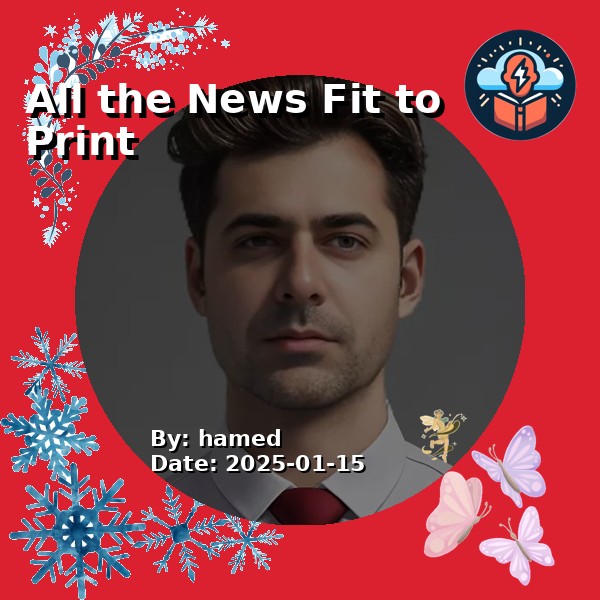Henry Jarvis stared at the printing press, its gears clanking like a restless machine ready to birth something monumental. Around him, the newsroom buzzed with the frantic energy of ambition and nerves. The air smelled of ink and candle wax, the soft glow flickering against stacks of freshly written articles.
“Jarvis! Stop gawking and hand me that proof,” called George Jones, the paper’s co-founder. His sharp tone belied the bags under his eyes, evidence of sleepless nights spent molding their vision into reality.
Henry handed him the proof, his hands smudged with ink. “It’s all there, sir. The editorials, the local crime report, the financial updates, and the steamship schedules. We even got the story on the European revolutions.”
Jones skimmed the pages, his expression caught between pride and exhaustion. “Good. But don’t forget, this isn’t just a collection of stories. It’s a statement. We’re not here to sensationalize—we’re here to inform.”
Henry nodded, though he knew the weight of those words. A statement. He’d joined The New-York Daily Times because he believed in its mission: impartiality, truth, integrity. But in a city that devoured scandal and gossip like a starving animal, would anyone care?
In the corner, Henry Raymond, the paper’s other founder, was hunched over his desk, pen scratching furiously as he worked on the lead editorial. His voice carried over the din: “This paper will be a beacon. A testament to what journalism can and should be.”
“Beacons cost money,” muttered one of the junior reporters, earning a glare from Jones.
The clock struck midnight. Outside, the streets of New York City were quiet, save for the occasional clatter of hooves on cobblestone. Inside, the press roared to life, spitting out the first issue of The New-York Daily Times. Henry watched the pages emerge, damp with fresh ink, and felt a strange mix of pride and dread.
“What if no one reads it?” he asked aloud, voicing the fear that had been gnawing at him.
Raymond looked up from his desk, his eyes steely. “Then we’ll try again tomorrow. And the next day. We’re not just publishing a newspaper—we’re building trust. That takes time.”
At dawn, Henry stood on the street corner, clutching a stack of freshly printed copies. The first headline read: “European Upheaval: A Nation’s Struggles Across the Sea.” Passersby glanced at the paper, some stopping to buy a copy, others hurrying past without a second look.
One man, a shopkeeper, flipped through the pages and nodded. “It’s good,” he said. “Honest.”
The simple word sent a thrill through Henry’s chest. Honest. That’s what they had promised.
As the sun rose higher, more people stopped to buy the paper. By noon, word had spread, and Henry returned to the newsroom, where his colleagues were already preparing the next day’s edition.
Jones clapped him on the back. “See? People want the truth, even if they don’t know it yet.”
Henry grinned, tired but hopeful. As he picked up his pen to start a new story, he realized this was only the beginning. The world was vast, messy, and brimming with stories that needed telling—and they were just the team to tell them.
